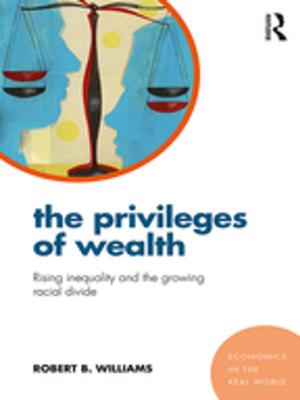Routledge Handbook on Capital Punishment
Nonfiction, Social & Cultural Studies, Social Science, Crimes & Criminals, Criminology| Author: | ISBN: | 9781317229834 | |
| Publisher: | Taylor and Francis | Publication: | December 15, 2017 |
| Imprint: | Routledge | Language: | English |
| Author: | |
| ISBN: | 9781317229834 |
| Publisher: | Taylor and Francis |
| Publication: | December 15, 2017 |
| Imprint: | Routledge |
| Language: | English |
Capital punishment is one of the more controversial subjects in the social sciences, especially in criminal justice and criminology. Over the last decade or so, the United States has experienced a significant decline in the number of death sentences and executions. Since 2007, eight states have abolished capital punishment, bringing the total number of states without the death penalty to 19, plus the District of Columbia, and more are likely to follow suit in the near future (Nebraska reinstated its death penalty in 2016). Worldwide, 70 percent of countries have abolished capital punishment in law or in practice. The current trend suggests the eventual demise of capital punishment in all but a few recalcitrant states and countries. Within this context, a fresh look at capital punishment in the United States and worldwide is warranted.
The Routledge Handbook on Capital Punishment comprehensively examines the topic of capital punishment from a wide variety of perspectives. A thoughtful introductory chapter from experts Bohm and Lee presents a contextual framework for the subject matter, and chapters present state-of-the-art analyses of a range of aspects of capital punishment, grouped into five sections: (1) Capital Punishment: History, Opinion, and Culture; (2) Capital Punishment: Rationales and Religious Views; (3) Capital Punishment and Constitutional Issues; (4) The Death Penalty’s Administration; and (5) The Death Penalty’s Consequences.
This is a key collection for students taking courses in prisons, penology, criminal justice, criminology, and related subjects, and is also an essential reference for academics and practitioners working in prison service or in related agencies.
Capital punishment is one of the more controversial subjects in the social sciences, especially in criminal justice and criminology. Over the last decade or so, the United States has experienced a significant decline in the number of death sentences and executions. Since 2007, eight states have abolished capital punishment, bringing the total number of states without the death penalty to 19, plus the District of Columbia, and more are likely to follow suit in the near future (Nebraska reinstated its death penalty in 2016). Worldwide, 70 percent of countries have abolished capital punishment in law or in practice. The current trend suggests the eventual demise of capital punishment in all but a few recalcitrant states and countries. Within this context, a fresh look at capital punishment in the United States and worldwide is warranted.
The Routledge Handbook on Capital Punishment comprehensively examines the topic of capital punishment from a wide variety of perspectives. A thoughtful introductory chapter from experts Bohm and Lee presents a contextual framework for the subject matter, and chapters present state-of-the-art analyses of a range of aspects of capital punishment, grouped into five sections: (1) Capital Punishment: History, Opinion, and Culture; (2) Capital Punishment: Rationales and Religious Views; (3) Capital Punishment and Constitutional Issues; (4) The Death Penalty’s Administration; and (5) The Death Penalty’s Consequences.
This is a key collection for students taking courses in prisons, penology, criminal justice, criminology, and related subjects, and is also an essential reference for academics and practitioners working in prison service or in related agencies.















